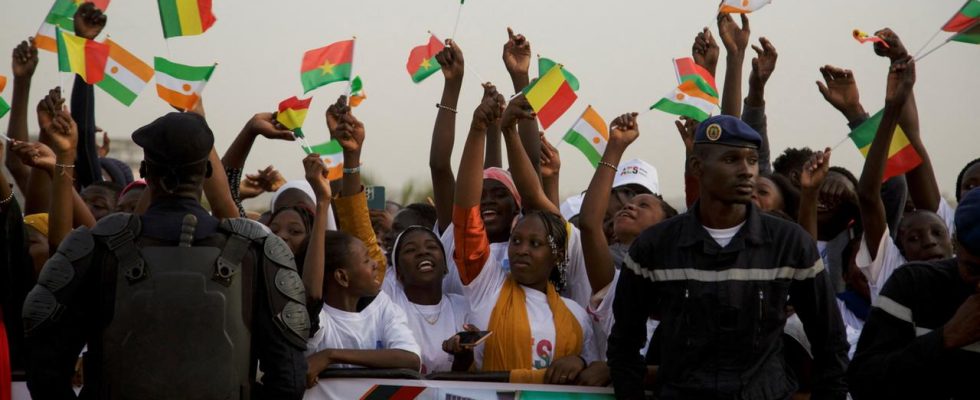In Mali, fears that instability will become even greater after the withdrawal of the UN mission appear to be confirmed. Is Mali on the way to becoming a failed state?
Even as the Bundeswehr was packing its containers in Mali last year, there were increasing signs of a significantly deteriorating security situation: the number of attacks and the intensity of the fighting between the Malian army and terrorist militias increased massively.
Now that the Germans and the UN peacekeepers are no longer there, all ominous predictions that the conflicting parties could clash with unhindered force seem to be confirmed: “We are really afraid here,” admits Mohamed Camara from the Ségou region in central Mali . “We are afraid of the terrorists and of the fighting with the Malian army.”
UN expert: Government is slipping from control
And if experts like Alioune Tine are to be believed, then the 40-year-old teacher has every reason to be afraid. At the end of March, the analyst, who has been monitoring and assessing the situation in the country on behalf of the United Nations for years, presented his current report at the UN in Geneva.
In it he reports a “rapid and persistent deterioration of the security situation in almost all regions of Mali”. And of areas that appear to be “slipping out of the control of the Malian authorities.” According to the independent expert, the civilians who suffer are the ones who are “caught between the hammer and anvil.”
Student Kadidia Aldjoubarkoye, who lives in the Timbuktu region in the north of the country, can only confirm this: She reports that terrorists are increasing the number of their attacks here and that there are increasing clashes between extremists and the army: “That creates a climate the insecurity in the region.” And 33-year-old Ankoundja Tembelli from Bankass in central Mali also complains: “The danger here is very high. We can’t even get to our villages.”
Blue helmets as a buffer
All of this is a development that was already becoming apparent when the blue helmets, including up to 1,200 Germans at times, left the country. They were also unable to counteract the creeping spread of the terrorist groups.
But the foreign troops had created islands of stability here and there and acted like a buffer between what UN expert Tine calls the “hammer and anvil”: between Malian government troops and their Russian allies on the one hand, and terrorist militias from IS or Al-Qaeda on the one hand and Tuareg separatists on the other side.
Growing influence of Russian mercenaries
In its fight against the expanding terrorist groups, the Malian army has been relying on Russian mercenaries from the former “Wagner” group for some time – which was also one of the reasons why the West and the government that came to power in a coup became estranged from each other.
The Russian mercenaries had undoubtedly helped the Malian troops achieve one of their greatest prestige successes in recent months: the capture of the strategically important city of Kidal in the north of the country. The political observer and non-fiction author Ali Ndiya from Mali points out, not without pride: “Kidal is a city that has not been under government control for twelve years.”
It is clear from Ndiya that he hardly sheds a tear for the UN peacekeepers. Because the Tuareg separatists withdrew from Kidal, this led to a temporary cessation of fighting, at least in this region.
Human rights violations increase
In his current report, UN expert Tine also complains about a worrying increase in human rights violations – especially by terrorists, but not only. And the organization Human Rights Watch reports that in mid-February – and these are just two examples – the Malian army killed at least 14 civilians, including children, in drone attacks on a wedding party and a funeral service.
According to Human Rights Watch, Russian mercenaries often make a fatal contribution to such attacks: They regularly support drone attacks and are also said to have been involved in the executions of civilians.
Author Ndiya has a slightly different view of these allegations: “What we as Malians want above all is the integrity of our national territory. You can’t make an omelette without breaking eggs.”
And the Malian military government also rejects the concerns raised in the UN report as “unverified and excessively alarmist.” Now that the Bundeswehr and the other blue helmets have withdrawn, it is becoming increasingly difficult to independently monitor compliance with human rights in view of the shrinking of safe spaces.
Worries are increasing
In any case, hardly anyone in Western security circles believes that the Malian armed forces, which probably consist of 20,000 to 30,000 men, can keep the terrorist groups in check permanently and ensure long-term peace in the country. Not even if the security forces get help from Russia.
Shortly after the Bundeswehr withdrew, photos began circulating showing Russian mercenaries taking possession of a gold mine in Gao, northern Malia. In other words, exactly where the Germans tried to ensure security for years.
But it is doubtful whether the Malian-Russian exchange deal – money and natural resources in exchange for help – will pay off for the Sahel state in the fight against terrorism. The danger remains that Mali will become a “failed state” after the West withdraws.
Kai Küstner, ARD Rabat, tagesschau, April 11, 2024 12:14 a.m

